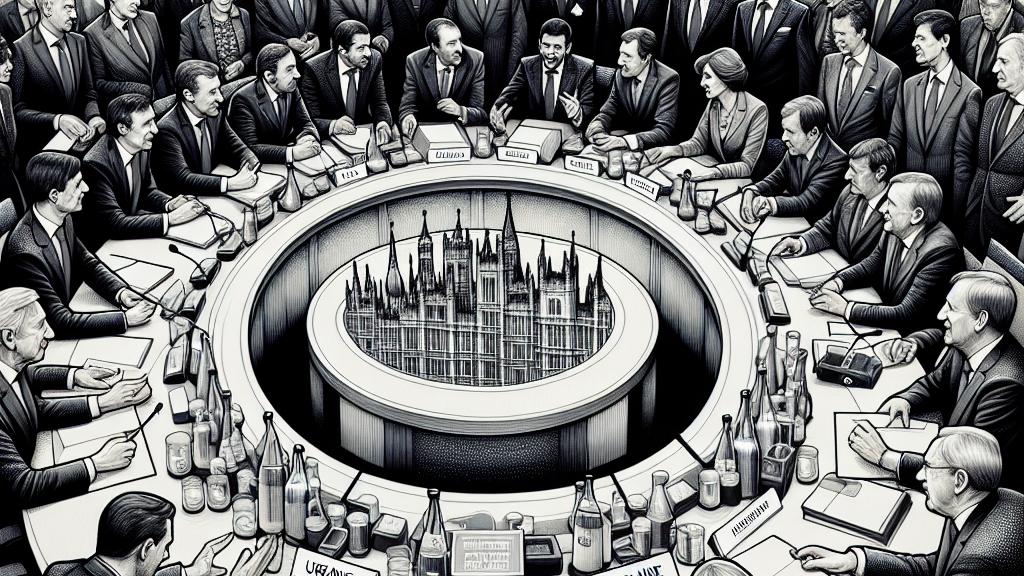Navigating New Alliances: The Impacts of Trump's Return on UK and Europe Relationships
Overview
- The UK and EU's new partnership is emerging amid significant political shifts.
- Concerns over Trump's potential trade policies catalyze strategic alignments.
- Recent discussions highlight collaboration on critical issues like Ukraine and economic cooperation.

A Shift in Alliances
In a surprising but not entirely unexpected twist, Donald Trump's anticipated return to the White House is breathing life into a revitalized partnership between the UK and the EU. This significant shift was evident during a landmark meeting in Brussels, where UK Chancellor Rachel Reeves engaged with her EU counterparts for the first time since Brexit altered their relationship landscape. Leaders displayed a palpable sense of urgency and enthusiasm as they recognized the imperative of collaborating on pivotal matters such as supporting Ukraine, enhancing free trade, and reinforcing economic cooperation. It’s crucial for these partners to unite; after all, they face common challenges that demand collective action.
Strategic Interests in Uncertain Times
As political tides shift, Europe finds itself in a delicate balancing act, especially with the looming threat of protectionist trade policies under Trump's administration. Once considered steadfast allies, the UK and the U.S. relationship is now under intense scrutiny. European leaders, eager to maintain their influence, are swiftly adapting their strategies to ensure that their voices resonate within the complex corridors of power in Washington, D.C. For example, during their recent productive discussions, they pinpointed the urgent need to address concerns over potential tariff hikes and the risk of dwindling American support for pivotal alliances, particularly concerning the ongoing conflict in Ukraine. This alignment of interests isn’t merely strategic; it’s essential for safeguarding the economic stability and security for both regions.
Looking Ahead: Regular Meetings and Future Talks
Looking to the future, the UK and EU leadership have decisively committed to establishing regular summits beginning in 2025, a move that underscores the importance of nurturing relationships. This initiative aims to foster open, ongoing dialogue that can adapt to evolving geopolitical landscapes. Chancellor Reeves clearly articulated that while these meetings are not designed to reopen past negotiations regarding EU membership, they do symbolize a crucial effort to rebuild trust and advance shared goals. Such a proactive approach not only strengthens trade ties but also solidifies commitments to collective defense. Ultimately, the partnerships being forged now are not mere reactions to political shifts; they are thoughtful strategies aimed at navigating an unpredictable future together, ensuring stability and collaboration in uncertain times.

Loading...